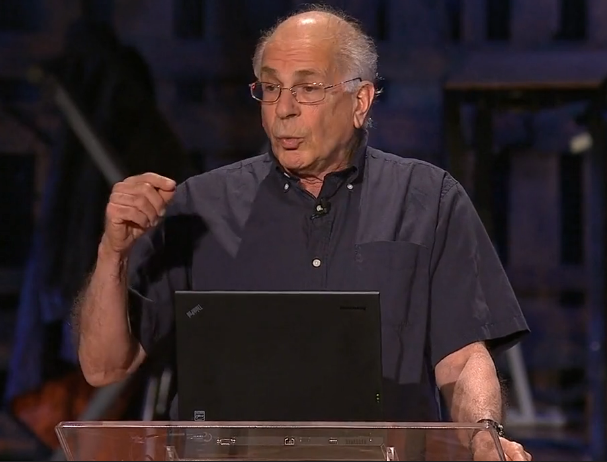I mean, how much do we consume our memories?
我們使用了多少的記憶?
That is one of the explanations that is given for the dominance of the remembering self.
這可以解釋記憶自我為何能成為主導的自我。
And when I think about that, I think about a vacation we had in Antarctica a few years ago,
這讓我想起一次假期,幾年前在南極度過的假期,
which was clearly the best vacation I've ever had,
這可以說是我最棒的一個假期,
and I think of it relatively often, relative to how much I think of other vacations.
與其它假期相比,我常常會想起這個假期。
And I probably have consumed my memories of that three-week trip, I would say,
這趟旅程大概讓我用掉了三周的記憶量,
for about 25 minutes in the last four years.
大概僅在過去四年中占了約25分鐘。
Now, if I had ever opened the folder with the 600 pictures in it, I would have spent another hour.
現在,如我打開資料夾,里面大概有600張相片,我可能要花一個小時來回憶。

Now, that is three weeks, and that is at most an hour and a half.
三周的旅程最多只用一個半小時來回憶。
There seems to be a discrepancy.
這似乎不成比例啊。
Now, I may be a bit extreme, you know, in how little appetite I have for consuming memories,
這讓我有點不滿,因為我記得真是太少了,
but even if you do more of this, there is a genuine question:
不過就算你記得再多,這里也會有個實際的問題。
Why do we put so much weight on memory relative to the weight that we put on experiences?
為什么我們用來記憶比依賴經驗還多?
So I want you to think about a thought experiment.
所以我希望你能思考一個有關思考的實驗。
Imagine that for your next vacation,
假使你的下一個假期,
you know that at the end of the vacation all your pictures will be destroyed,
當你知道假期結束后假期中所有的相片將被銷毀時,
and you'll get an amnesic drug so that you won't remember anything.
而你也會吞下一顆遺忘藥以使你遺忘一切。
Now, would you choose the same vacation?
這樣,你還會想過同樣的假期么?











